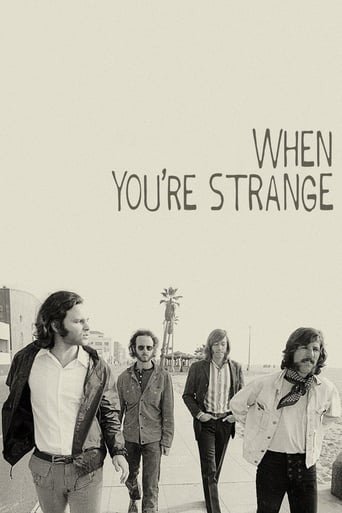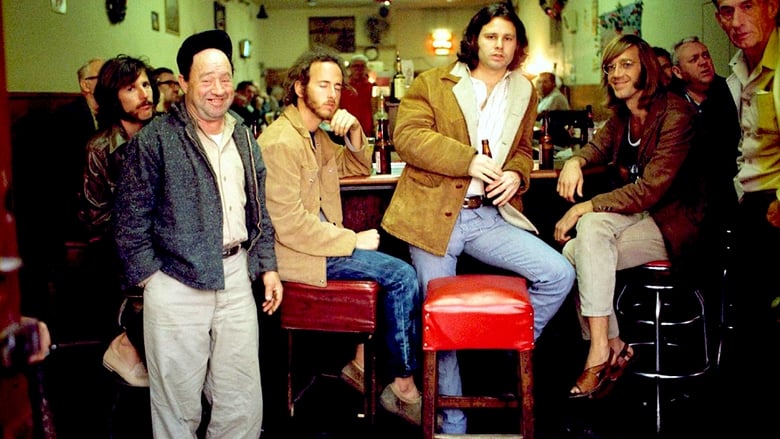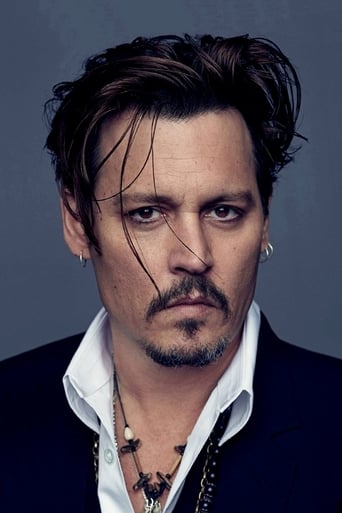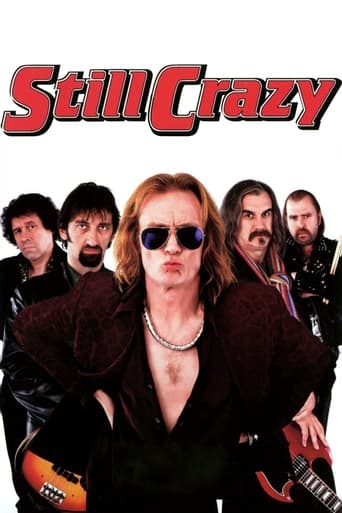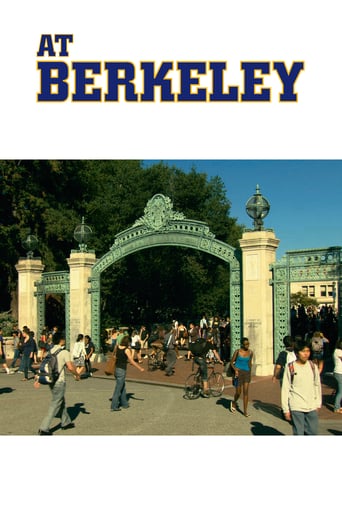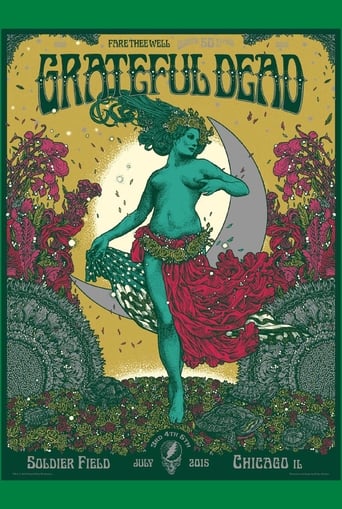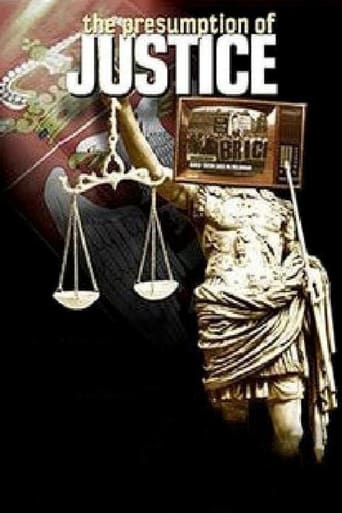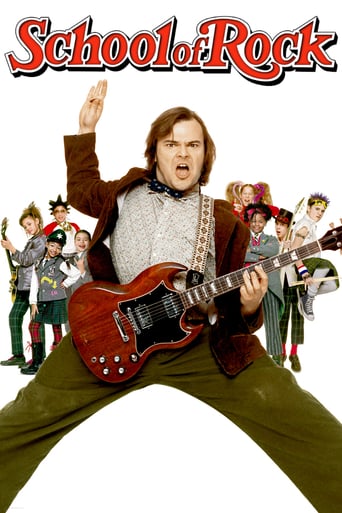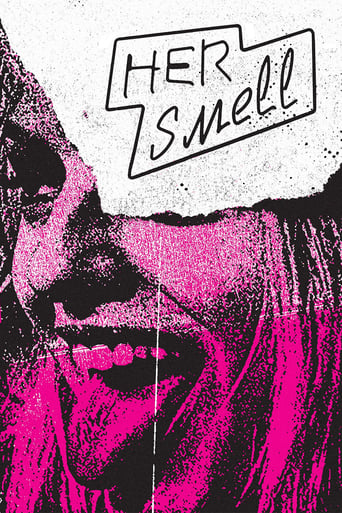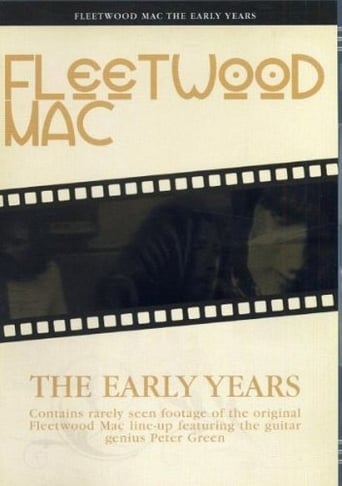When You're Strange (2010)
The creative chemistry of four brilliant artists —drummer John Densmore, guitarist Robby Kreiger, keyboardist Ray Manzarek and singer Jim Morrison— made The Doors one of America's most iconic and influential rock bands. Using footage shot between their formation in 1965 and Morrison's death in 1971, it follows the band from the corridors of UCLA's film school, where Manzarek and Morrison met, to the stages of sold-out arenas.
Watch Trailer
Cast
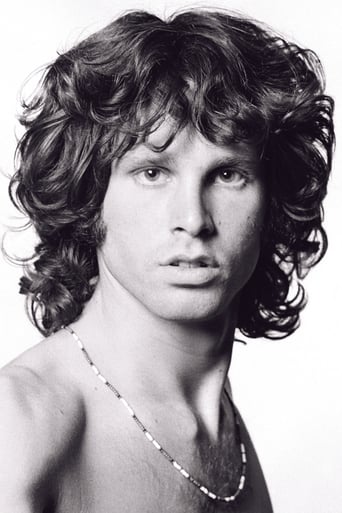
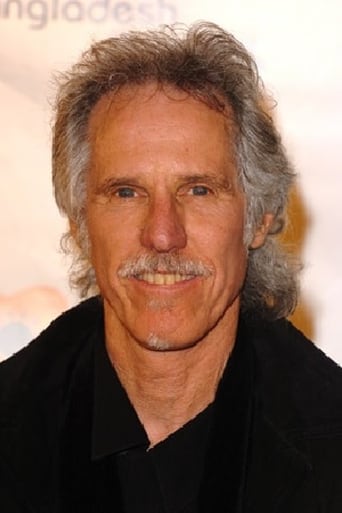


Similar titles
Reviews
Redundant and unnecessary.
Overrated
I think this is a new genre that they're all sort of working their way through it and haven't got all the kinks worked out yet but it's a genre that works for me.
Unshakable, witty and deeply felt, the film will be paying emotional dividends for a long, long time.
"The End – I hate that song" mutters the girlfriend the other month. "But it's a work of staggering genius!" I cry. "It's The Doors" she says. "When I was 17, everyone I knew had that bloody poster on their door. Or that plinky-plonky sixth-form poetry on their turntable." During the 1980s, especially, The Doors' legacy could pretty much be boiled down to that bloody poster of that bloody awful man, and a workaday cover of People Are Strange in The Lost Boys.So I tell her about The End. Why it matters; why it's important. I boozily tell her about the Apollonic and the Dionysiac, the Oedipus myth, the ritual murder of priest-kings, the Golden Bough, Nietzsche, Heart of Darkness and Jung's dark night of the soul. I namecheck Aldous Huxley, Joseph Campbell, TS Eliot and his Hollow Men. I use the word 'existentialism.' I explain how all the above feeds into the lyrics for The End. And when it's all over, she says "Well, I suppose it's okay then." Two weeks later, while watching the new Doors documentary When You're Strange, I discover it's a song Jim Morrison had written about breaking up with his high-school sweetheart.Few groups occupy a territory between the arcane and the mundane as conspicuously as The Doors. You know the party line: Morrison was an "electric shaman", leading his tribe into an elevated state of consciousness during communal gatherings (had Morrison been born in Wakefield, his opening incantation might have been "Is ev'rybody in? Let the bingo begin!").For many others, The Doors' sound is akin to that of a grizzled barfly barking obscenities over music resembling the theme tune to ITV's Tales of the Unexpected. The hideous 'Touch Me', in particular, sounds like something a cheesy 1960s comedian might sing over his sketch show credits. Don't get me wrong, I like some of their songs. But very often, it's mute nostril agony.Still, there are enough 'Boomers around to keep stoking the myth. When You're Strange is the first feature-length documentary about the group, and comprised exclusively of archive footage (no talking heads) and outtakes – flotsam to be reemployed and placed in service. Essentially, it's an unimaginative VH1-style profile with pretensions.The narration, coolly uttered by Johnny Depp – an actor who clearly wishes he'd been born in 1950, and whose voice-over has belatedly replaced the director's own in what you'd have to conclude is a pretty astute marketing move – is sheer Colemanballs: banal and often factually incorrect. Morrison, we're told, "is both innocent and profane, dangerous and highly innocent. No-one has had this exact combination before." Seriously? Elsewhere, "The youth movement catches fire, making everyone over the age of 30 a cultural enemy." So, that's counter-culture heroes Leary, Burroughs, Warhol and Bucky Fuller immediately show-trialled out of the picture then. Almost despite itself, it'll occasionally throw up a grimly arresting image: Nehru jackets with Peter Sellers specs; Ed Sullivan lurching around like something from an Ed Wood picture; ghoulish audiences paying to watch a car-crash, repeatedly chanting 'Light My Fire' at a snarling drunk who can't stand up.A delighted Ray Manzarek calls this the "anti-Oliver Stone"; he's very much not a fan of The Doors, the movie. Yet, laughable as that film is, it does at least have some lunatic life to it. Ironically, there is nothing here as purely exhilarating as Stone's 10-minute recreation of the infamous 1969 Miami concert, in which Val Kilmer alternately alienates and galvanises the crowd. The best rockumentaries – Dig, Oil City Confidential – have charismatic live-wires at their centres. When You're Strange has a dead lizard.
Despite the brevity of their career, The Doors have a firm place in American culture with streams of books, documentaries, biopics and even a Hollywood film. When You're Strange is the latest documentary to be produced on the band. Written and directed by Tom DiCillo and narrated by Johnny Depp, it is one of the slickest and best constructed documentary of the band produced.There are two pitfalls directors encounter when tackling the subject of The Doors, neither of which DiCillo is able to avoid. The first, and is quite unavoidable, is the blurring of the story of the band with the story of Jim Morrison. Granted Morrison was the focal point of the band, but all too often the other three musicians, and the music itself, are treated as sidebars to the story of Morrison.To DiCillo's credit he does include interviews and snippets about the other members of the band. But insight into their music is very brief. John Densmore speaking about the Doors in terms of the evolution of jazz is the most interesting, and made me wish there were more such insights.The other pitfall is entirely avoidable, which is to make vague generalizations and connections between Jim Morrison and the political climate and events of the sixties. While it is true that all bands, musicians and works of music are informed by their socio-political setting, there is also a quality in great music (and The Doors produced GREAT music) which transcends time and culture and address universal concerns.A blatant example of this is footage of The Doors playing "The End" at the 1970 Isle Of Wight festival. The footage is stunning and the sound is great, but too often the screen shifts from the band to stock footage of Martin Luther King Jr., the assassination of Robert Kennedy, and news reel video of US troops dropping napalm on a village in Viet Nam.This editing begs the question of the relevance between the two. What does a performance of "The End" in England in 1970 have to do with assassinations in the summer of 1968? "The End" began as a song about the ending of a personal relationship and was expanded to become a psycho-sexual drama bordering on myth, and it's relation to American politics and foreign policy isn't clear.Despite those concerns, When You're Strange is one of the best documentaries of The Doors. It opens with footage from what looks like a pristine print of Morrison's 1969 film HWY: An American Pastoral. Clips from the film are used throughout the documentary to lend continuity to the narrative, and often used to comment upon the events discussed.All of the facts seem correct, even mentioning commonly known details about the band such as Morrison wanting Robby Krieger to play bottle neck on every song.DiCillo also continues the trend of contemporary documentary film-making in being more intentional in the footage used and images shown to make a point. For example, when the narrative reaches the Miami 1969 incident, Depp's voice-over states that the band were "surprised." While saying this, the footage shows Ray Manzarek looking surprised. The scene has nothing to do with the Miami indictment, but such editing is effective in making his point.Overall this is a very strong documentary of the Doors. It was nominated for the Grand Jury Prize at the 2009 Sundance Festival, and it deserves such accolades.The bonus material contains a fascinating interview with Jim Morrison's father, the late Admiral George S. Morrison. This is supposedly the only time he's been interviewed about his son before his death in 2008. Not much is mentioned of him in the older sources such as No One Here Gets Out Alive. The only pieces of information in that book were his displeasure at hearing "The End," the letter he wrote to his son telling him that he has no talent to be a singer, and that he contested his son's estate after the death of Pamela Courson.The impression one gains from watching the interview is much different. He comes off as a proud and loving father who misses his son, whom he lost both to the demands of fame and his death in 1971. He reiterates his assessment that his son shouldn't have been a rock singer because he felt his talent lay more in film-making.If for nothing else, watching the interview with the Admiral is the most interesting part of the disc. It is unique since no other documentary has ever interviewed him, and makes it worth the asking price.
Jim Morrison's magic is said to have been a question of what he would turn to. Heaven or hell? His magic was anyway more about making an extremely interesting fusion of poetry and music. Neither of them would have managed without the other.This documentary shows many interesting clips, also from studios and backstage. The problem is that the analysis anyway is a little shallow. Both when it comes to The Doors as a phenomena and the times they were living in.And most of all perhaps when it comes to the double or triple meanings of that poetry. Which really was something which was floating between heaven and hell.
It's a documentary. But, the subject being the performing career of the doors, this documentary really becomes a biopic of James Morrison. I enjoyed the film as the former but less as the latter. DiCillo makes cursory investigative inroads into why Morrison might have been the 'shaman' his bandmates allegedly took him for. Yet the connect between the culture-quake through which Morrison lived and to which he contributed is not sufficiently well investigated.The editing isn't too bad, making use of all manner of media and rough cut footage to try and give an impression of time and dynamic, rather than just illustrating the story. Irritatingly, DiCillo uses the conceit of a Morrison lookalike, tearing up the desert in a Mustang, free from his celebrity, deathless like Elvis (his hero, also unexplored). It,s unnecessary and is symptomatic of the indulgence which has clouded DiCillo's judgement. 4/10

